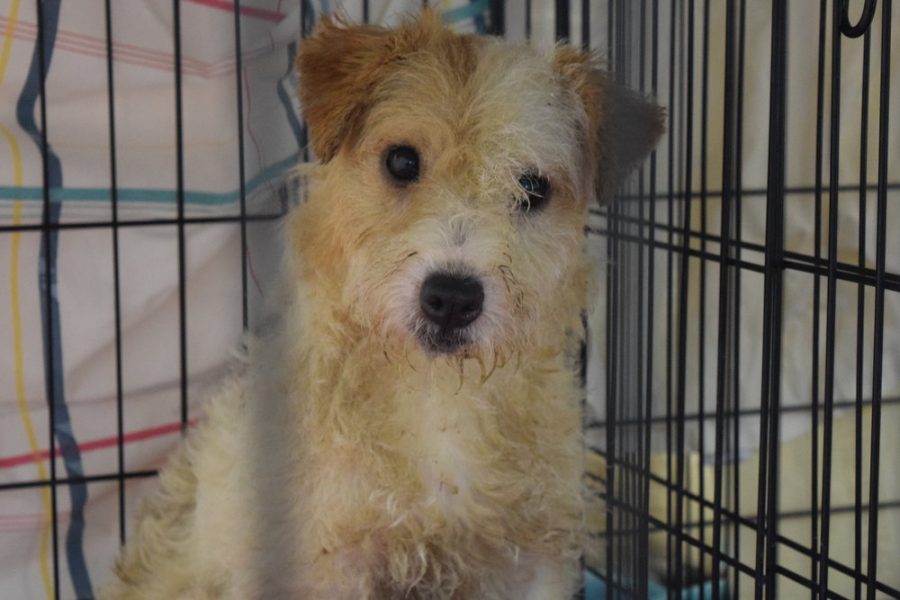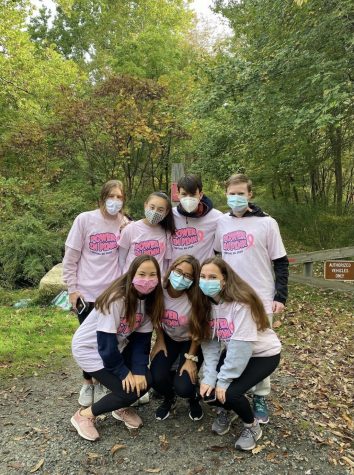Animal Shelters and COVID-19: What Has Been Going On and How Students Can Help
It’s no secret that COVID-19 has been an obstacle in all of our lives, and the same can be said for animals in shelters and the people who care for them. According to Sarah Sangree, the Director of Community Engagement at St. Hubert’s Animal Shelter in Madison, NJ, “[the role of animal shelters] has not changed, though our ways of operating certainly have.” Shelters are still needed by dogs, cats, birds, rabbits, gerbils, hamsters and the other small animals they take in and protect, but they’ve had to learn to adapt to COVID.
For instance, Ms. Sangree explained in an email that “since March, Madison is the only one of our shelters that has been open to the public.” In normal circumstances, St. Hubert’s would have been able to set up adoptions, connect pets with potential adopters, house and care for abandoned and rescued animals, provide various health services to animals, provide humane education and operate a pet food pantry at three different New Jersey locations. Since the pandemic, they’ve had to work through only one location with limited staff and they’ve had to adjust the way they provide the services previously mentioned. While they are still out helping pet owners, underserved communities and other shelters care for animals, humane education has had to be virtual. Also, potential adopters have to schedule appointments to meet animals instead of just walking in.
St. Hubert’s has also experienced “significant financial challenges”, Sangree adds. The doggy day camp and training/behavior center classes that St. Hubert’s normally operates makes up a meaningful portion of the shelter’s revenue, but both services had to close for a few months due to the pandemic.
However, while animal shelter operations may look different this year, they’ve been as busy as ever caring for animals. Readers may have noticed that their friends and neighbors made furry additions to their families, and may have even adopted a pet themselves, throughout the duration of the COVID-19 lockdown. According to Ms. Sangree, St. Hubert’s was “surprised at how strong adoptions have been during the pandemic” and that it has even been difficult for St. Hubert’s to “accommodate all the potential adopters who want to come to the shelter.” While everyone wants to spend their newly found time at home raising a new pet (or training their new puppy, which has been especially popular), St. Hubert’s has had to try to accommodate a normal number of adopters in just one out of the three locations they normally would have. Ms. Sangree points out that in 2019, St. Hubert’s adopted out around 3,400 pets from their three shelters. “This year we expect the number will be a little lower since only our Madison shelter has been open since March and we’ve had to limit the number of people in the shelter,” Sangree says. But considering that two of St. Hubert’s shelters were not utilized, coming close to 3,400 adoptions in a global pandemic proves that the demand for pets has continued to be strong in 2020.
With significant financial stress, different protocols, reduced staff and changes in the way St. Hubert’s and other animal shelters have made themselves available to help animals, this year has no doubt been extremely hard. But there are things any student can do to help out our furry friends and the people who take care of them. Ms. Sangree advises students to organize and participate in supply drives where they can donate pet food. “We are always in need of donations of cat and dog food,” she says, so any donations to St. Hubert’s would be much appreciated. While the shelter isn’t accepting new volunteers at this point in time, look out for volunteer opportunities in the coming months- there may be opportunities for kids 16 and older to volunteer and help the animal shelter staff in smaller ways.
If you want to expand your family, then consider adopting a pet from a local animal shelter like St. Hubert’s. Think about what pet would suit your family best- considering your lifestyle “when you are spending more time at home- but also in the future when Covid is no longer dictating our lives,” Ms. Sangree advises.
While adopting a pet isn’t ideal for every family, there are more ways to help. Through donating, participating in supply drives and (in the future) volunteering, students can help animal shelters get through this difficult time so that they can continue to provide for the animals we love and adore.

Adeline Perkins is a sophomore at West Morris Mendham High School. Her favorite subjects in school are math and science, and in her free time she loves...










